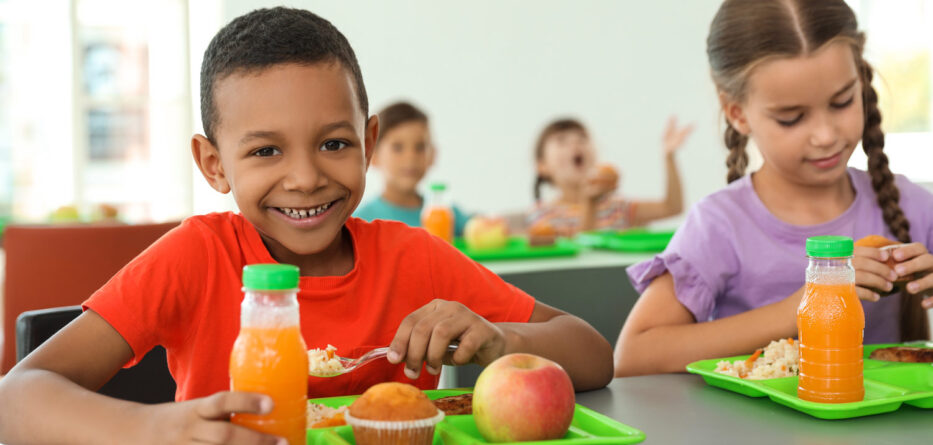Plastic foodware has become a mainstay in school cafeterias, but one Massachusetts school district is reaping the rewards of going plastic-free.
Bedford Public Schools replaced more than 260,000 single-use foam trays with ones made of reusable stainless steel, eliminating close to three tons of waste while saving the district nearly $12,000 in less than a year.
Dr. Manasa Mantravadi is a board-certified pediatrician and founder of the stainless steel foodware company, Ahimsa. She said schools are giving their cafeterias a makeover in the interest of student health.
“While we can’t get rid of it all,” said Mantravadi, “this is a very specific, actionable item that parents and schools can do to mitigate the risks of plastics.”
She said the chemicals in plastics have been shown to interfere with children’s hormones, growth, and brain development. Stainless steel is the only kid-friendly material recommended by the American Academy of Pediatrics.
Bedford Public Schools is a small system of four schools, serving about 1,400 lunches each weekday, district-wide.
Educators worked with Ahimsa to not only incorporate its products into the lunch program, but teach students about the risks of ingesting plastic and the environmental damage caused by food waste. Mantravadi said students were quick to notice the positive change.
“They see the trash in their cafeteria dwindle almost overnight,” said Mantravadi. “They can feel the value of that tray and almost instantaneously the amount of food waste that’s occurring on those trays shrinks.”
Most food waste ends up in area landfills where it generates methane, a potent greenhouse gas.
Mantravadi said Ahimsa stainless steel plates also serve as a visual map for children to eat a more varied and balanced meal.
With more than 30 million students enrolled in the National School Lunch Program, she said the potential health and environmental impacts of eliminating single-use plastic are significant.





